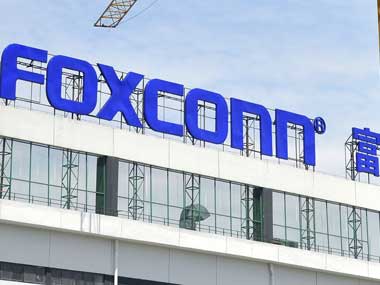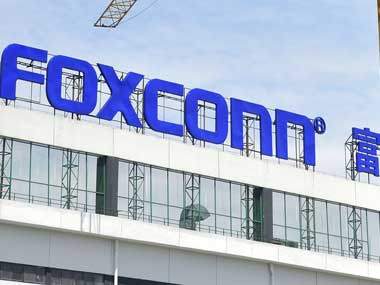After nearly one year into launching his Make in India campaign, Prime Minister Narendra Modi has hit the jackpot with Foxconn, the Taiwanese maker of iPhones, last week announcing a $5 billion investment in Maharashtra. The company, whose customers include giants such as Apple and Blackberry, has been given 1,500 acres in Talegaon, near Pune, to set up a semiconductor facility, which will cater to export as well as domestic markets.[caption id=“attachment_2387764” align=“alignleft” width=“380”]  Reuters[/caption] Chairman Terry Gou had earlier said the company is aiming to develop 10-12 facilities in India, including factories and data centres, by 2020. Apart from this investment, Foxconn has also tied up with Chinese smartphone maker Xiaomi to start assembling phones in India. The development assumes significance mainly for two reasons: For one it is a big relief for PM Modi, whose image has taken a beating in the recent times with analysts and observers complaining that he has failed to keep up with the expectations he himself built up in the run-up to the elections. There have been complains that the prime minister is yet to bring in projects that will create jobs, which was his key promise. Foxconn’s investment will create jobs and also bring in a substantial amount of FDI. Moreover, it has to be remembered that this is a comeback for the company. It had only recently pulled out from India after Nokia unit in Chennai was shut down. That it is coming back will serve as a big boost for Modi. No wonder he was all ears for the case made up by the company’s chairman Gou at a two-and-a-half hour meeting last week. According to a report in The Economic Times, in a presentation the company said it will set up its supply chain and entire ecosystem here which will help it establish the country as a manufacturing base. “Gou was in a dilemma regarding investments in India but the meeting with the PM clinched the deal,” the report cited a source as saying, adding that the two - the PM and Gou - hit it off well and Gou has been all praise for Modi. Also, the move comes weeks after South Korean steel giant Posco suspended works at its planned $12 billion Odisha unit - by far the biggest FDI in the country. Modi can now project this as as a sign of victory over the doubting tomases. Secondly, it shows the advantage India has over China. There is palpable worry in China about Foxconn’s India plans. “Foxconn chooses India over China for new plant”, the headline in state-run china.org.cn screamed, according to a PTI report. “The Foxconn-India deal also shows that India wishes to develop its manufacturing sector, as the rising labor cost in China is forcing away many investments in lower-end and labor-intensive industries,” the report in china.org.cn has said. What has forced Foxconn to drive out of China is the rising wage cost there. As this Mint article explains, it is bound to happen there because the economy is currently transforming from manufacturing-driven to consumption-driven. As opposed to this, there is enough cheap labour in India. Above all, the Chinese economy is slowing, while there are signs of revival in India. This also gives an opportunity for India to spruce up its manufacturing sector. But does this mean India is fully prepared to be a electronics manufacturing hub? If yes, China’s present situation is offering a major opportunity for India to tap. Remember, electronic items are a key item in India’s import basket and contribute to the country’s current account deficit. But the answer to the question is India is not yet ready to take up the challenge. The reason is, as this CNN report says, Chinese factories have been finetuned over the last few decades to cater to the requirements of technology companies. “When Apple needs a new iPhone on short notice, the only factories that can quickly produce and assemble the required glass, chips and components are in China,” the report says. Apart from this there are duty anomalies, other tax issues and lack of labour reforms that kill the global companies’ enthusiasm to make investments in India. If the government doesn’t want to miss the bus this time round, it will have to act fast on these fronts.
Above all, the Chinese economy is slowing, while there are signs of revival in India. This also gives an opportunity for India to spruce up its manufacturing sector.
Advertisement
End of Article


)

)
)
)
)
)
)
)
)



